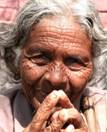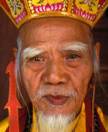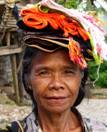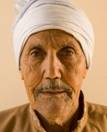 |
 |
|
|
|
||
| SEARCH | SUBSCRIBE | ||
| |
|
|
|||
|
|
NGO
Activities toward
Editorial:
International Human Rights of Older Persons: The Gray
Wave (April 2012)
Charles P. Sabatino is the director of the American Bar Association’s (ABA) Commission on Law and Aging. In this editorial, he describes recent NGO advocacy efforts, particularly Global Action on Aging, to get the United Nations to pass a convention on elder rights. Presently, older people’s rights are rarely mentioned or monitored. Treaties are likely to cover ‘soft issues’ such as cultural involvement rather than substantive and enforceable civil and political rights. For the first time the ABA is supporting an elder rights convention even before the UN has decided to pursue such an idea. The ABA, which has consultative status with the UN, will be an active observer in the deliberating process. The Open Ended Working Group at the UN will next meet in August 2012. Report: Argentina: Challenge Related to Aging of Population Ten years After MIPAA: Public Policies in Argentina from Point of View of Rights of Older Persons (October 6, 2011) Dr. Adriana Fassio, Ministry of Social Affairs, National Direction for Policies for Older Persons, Argentina, was one of the keynote speakers on the International Day of Older Persons. In her speech she spoke about her country’s history, referring to the crisis it went through, and the impact on older people’s lives, as well as the issues they face today. Older person’s rights to economic security, health, wellbeing and the recognition of their contribution to society were also discussed. As a conclusion, she reaffirmed her wish to see the implementation of a Convention on older people’s rights.
Report:
Statement by the Federation of Associations of Former
International Civil Servants (FAFICS) (1-4 August,
2011) Report: HelpAge
International: Violence Against Older Women: Tackling
Witchcraft Accusations in Tanzania (August 2011)
People, mostly older women, are persecuted and accused of witchcraft in many parts of the world including India, Kenya, Ghana, and Burkina Faso. In Tanzania, the situation is one of the worst: according to a Tanzania Legal and Human Rights Centre report, 2,585 women have been killed in eight regions where the practice is predominates; unofficial figures are more likely to be a thousand killings a year. The solutions are: to educate people through NGOs’ actions; to enforce witchcraft-related law and judge killers of so-called witches; an international awareness of witchcraft accusations. Report: The Right
to Social Security in Old Age: Bridging the
Implementation Gap (August 2011) Joint Statement by the
International NGO Coalition for the Rights of Older
People (April 18, 2011) Fact
Sheet on the Open Ended Working Group on Ageing
(March 2011) Adoption of
the DRAFT General Recommendation No. 27 on
Older Women and Protection of their Human Rights
(October 1, 2010) Ferdous Ara
Begum Video Interview (August 26, 2010) Report
:
Strengthening Older People's Rights: Towards a UN
Convention (February 4, 2010) International
Association of Gerontology and Geriatrics (IAGG)
General Conference: Speech by Sergei Zelenev (July
2009) NGO Side
Event during the Commission for Social Development:
Strengthening the Rights of Older People (February
9, 2009) Global
Action on Aging Side Event: "What can Ageing
Advocates Learn from the Disability Convention
Process?" (February 6, 2008)
|
|||
| |
|
|
|



